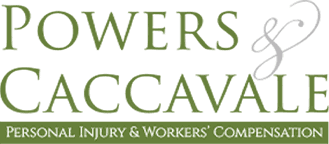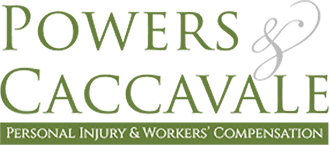
Quincy Work-Related Vehicle Accident Attorneys
Representing Injured Commercial Vehicle Operators
What do UPS truck drivers, taxi drivers, bus operators, pizza delivery employees, long-haul truck drivers, and emergency responders all have in common? All of their job descriptions include driving motor vehicles, whether it’s a company car or a personal vehicle.
You may have the following questions:
- What happens if you get involved in a car or truck accident while on the job?
- Who’s to blame?
- Will you receive compensation?
- Will you have to pay for third-party injuries?
These questions are not easy ones to answer since there are so many variables to consider and because Massachusetts law can be a little vague on the topic. But, if you have a job that requires driving in any capacity, you need to know your legal rights if something were to happen.
After all, transportation accidents account for over 40% of all workplace deaths in the United States each year—a scary statistic to think about.
Read on to learn more about your rights, or contact the Quincy work-related vehicle accident lawyers at Powers & Caccavale for a free consultation. Call us at (617) 379-0016.
When Are Driving Situations Considered “On-The-Job?”
With other workplace injuries, it can be easy to determine whether or not the accident took place “on-the-job.” However, work-related vehicle accidents can be harder to define since they don’t usually happen in a specific work area. Generally, if you are driving or riding in a vehicle for work-related reasons, you can be covered by workers’ compensation.
Examples of these types of situations include:
- If you drive for a living (truck, bus, and taxi drivers, etc.)
- Making deliveries (pizza delivery employees, etc.)
- Using a company vehicle to pursue job duties
- Transporting another employee
- If you are compensated by your boss for travel to and from home and work
- If you travel for work and have no fixed office
- Running an errand for your boss (picking up supplies, coffee, etc.)
If you get into a car accident while commuting from home to work, you most likely will not be eligible for worker’s compensation benefits. This is because you are not considered “on-the-job.”
However, if your boss asked you to pick up something for the office on your commute to work, and you got into an accident, you may then be entitled to worker’s compensation benefits. Additionally, just because you were driving for your job, does not always mean your employer is responsible.
For example, if you were delivering a pizza by car and you got into an accident, it may seem obvious that you were involved in a workplace accident. However, if you were speeding, driving recklessly, or using unapproved driving routes, your employer may argue that you were not within the scope of employment.
You can see where the lines start to blur, which is why it’s best to consult with one of our Quincy work-related vehicle accident attorneys to see if you are eligible for worker’s compensation.
Employer Responsibility
If you think you’ve been involved in a workplace vehicle accident, you’re probably wondering what kind of compensation you can receive. After all, you may need time off work to recover, you may have medical bills, and third parties may be coming after you for compensation.
Generally speaking, the legal doctrine of respondeat superior comes into play here. This just means that employers are legally responsible for the actions of their employees while those employees are performing job duties.
In the case of work-related vehicle accidents, this means that employers are usually monetarily responsible for:
- A portion of lost wages
- Property damage
- Medical bills
- Vocational rehabilitation costs
- Out-of-pocket expenses (crutches, bandages, etc.)
- Settlements for accidents resulting in disabilities
Note: Worker’s compensation does not pay for pain and suffering.
Your employer’s liability insurance will also protect you against lawsuits filed against you by third parties. This means that if you injured someone or his or her property in the accident, your employer will be responsible, not you. Of course there are exceptions here, such as if you were engaging in criminal activity.
Additionally, if the accident was not your fault, you may be entitled to workers comp and the third party driver’s liability insurance. This means that you may be able to receive the full amount of your lost wages, as well as compensation for pain and suffering.
When Is an Employee Responsible?
There are certain situations in which a company's liability or workers' compensation insurance will not cover an employee's car accident:
Criminal Activity
An employer will generally not be held responsible if an employee is involved in an accident with a company vehicle while committing a crime. If the accident involves criminal activity, such as driving while under the influence of drugs or alcohol, the employer may refuse to indemnify the employee from third-party lawsuits.
Going on a "Frolic"
Employees who are using a company vehicle to run personal errands or otherwise "goof off" may be held responsible for any injuries or damages they may cause in the event of an accident.
Non-Business Activities
Many employer vehicle agreements contain specific terms which specify when an employee is and is not covered under insurance. For example, you may not be covered for a car accident you cause while commuting to or from work. Always check the fine print of your vehicle agreement.
Can You Collect Workers' Comp and File a Civil Claim?
You generally do not have to choose between filing a workers' compensation claim and filing a personal injury claim. Accepting workers' compensation benefits from your employer does not bar you from seeking damages from the driver who caused your accident.
If you do receive workers' compensation benefits, however, your employer or its insurance company may have a right to collect part of any monetary award you receive as a result of your third-party lawsuit.
For example, if you receive $20,000 in workers' compensation benefits from your employer, and you later are awarded $50,000 in compensatory damages in your civil claim against the other driver, your employer may have a right to $20,000 of your settlement. This is known as a "lien."
The manner in which the workers' compensation system interacts with a personal injury claim can be complex. For this reason, if you are considering pursuing both workers' compensation benefits and a third-party claim, it is best to consult with an attorney to get a better understanding of your legal options.
Contact our Vehicle Accidents Lawyers for a Free Consultation
Your employer will most likely fight back and hire lawyers to argue a case against your claim. In some cases, your claim may even be denied, requiring you to file an appeal and fight for your deserved compensation. That’s why you need an experienced legal team to help advocate for your case and work to get you the compensation you deserve.
Our attorneys at Powers & Caccavale have the legal experience, understanding of the inner workings of insurance companies, and the determination needed to achieve excellent outcomes and maximize your monetary compensation. While we (nor any attorney) cannot guarantee a specific outcome in your case, we can assure you that we will fight tirelessly in our efforts to recover the full, fair compensation you are owed.
For a free consultation regarding your work-related vehicle accident case, contact Powers & Caccavale online or by phone at (617) 379-0016.

Real People. Real Stories.
-
Excellent Attorney
James R. -
Excellent and True to His word
Previous client -
True professional
Chris

-
Over 35 Years of ExperienceWe use our combined experience to aggressively represent you and to fight for your rights and the benefits you deserve.
-
Insight to Insurance Company TacticsOne of our partners, Gerry, previously spent over a decade working for an insurance company, so we deeply understand how they work and what it takes to get you paid.
-
Small, Local FirmWe have deep roots within our community and strive to deliver exceptional service for our clients through their time of need.
-
Always Prepared for TrialWe advocate for our clients to ensure they get the compensation they deserve no matter how little or big the fight may be.
-
Direct Contact to an AttorneyWhen you hire us, you will be working directly with an attorney throughout the entire process.
Request A Free Consultation
Whether you have questions or you’re ready to get started, our legal team is ready to help. Complete our form below or call us at (617) 379-0016.

